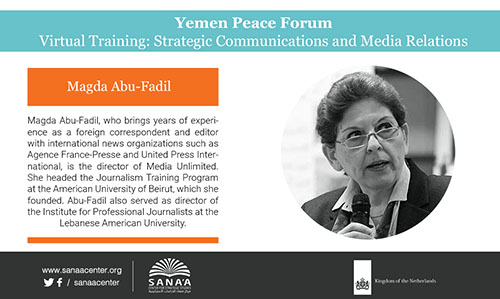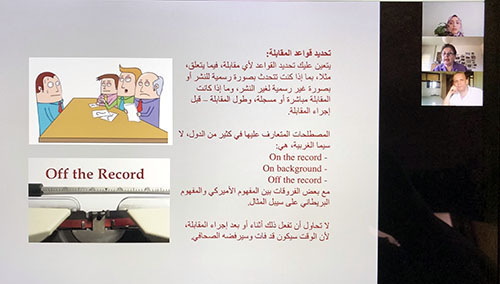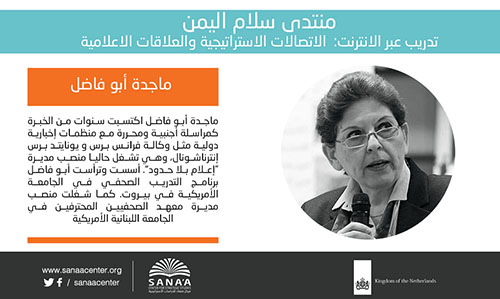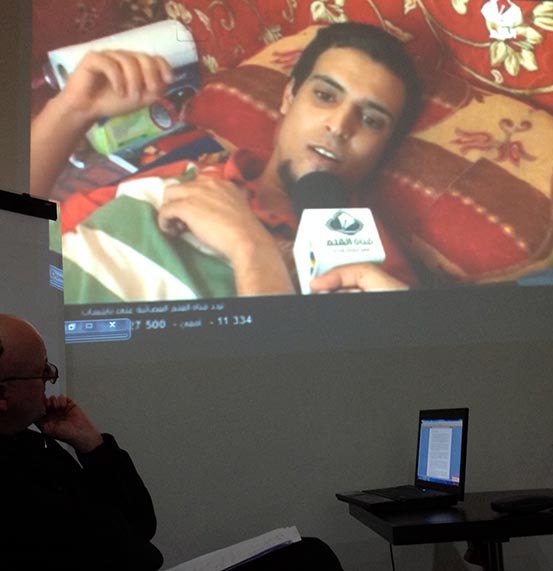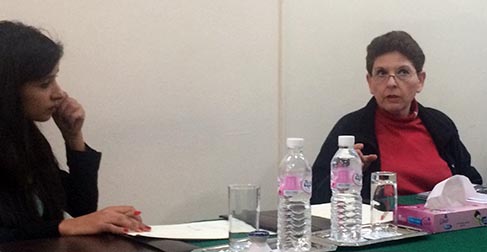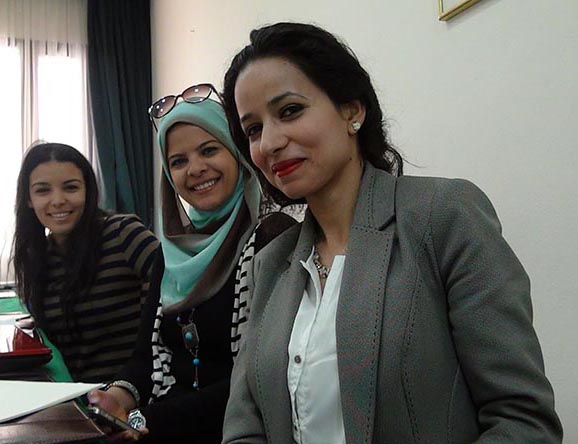Mastering interviewing techniques via Zoom requires an additional skill set for journalists, which Media Unlimited director Magda Abu-Fadil shared in a workshop grouping Arab News reporters from the paper’s different bureaus.

Two-day workshop on successful Zoom interviews
The two-day training in August 2021 first focused on technical and logistical matters, including securing a setting for an interview, preparing one’s digital equipment, testing devices and apps, Wi-Fi connections and recording protocols.
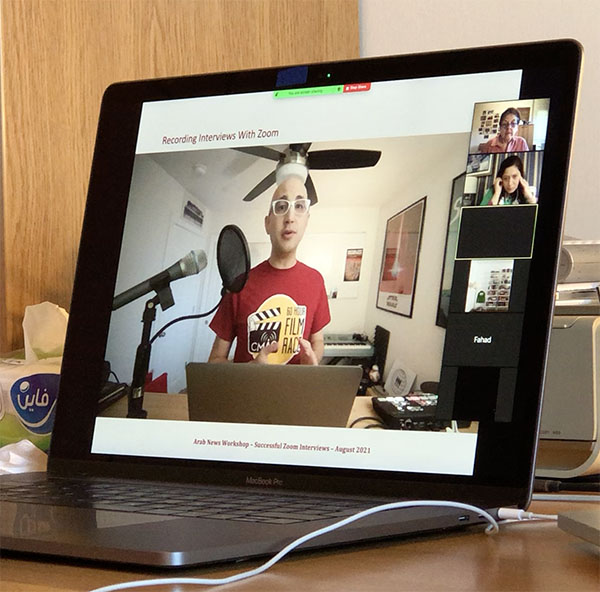
Recording interviews with Zoom
Abu-Fadil also focused on how to adjust and stabilize sound requirements, what types of lighting the interviewer and interviewee need and different camera functions, be it on the device used like a desktop, laptop and tablet, or an externally mounted camera.
She also provided tips on the need for a visually pleasing and professionally looking backdrop, the interviewer’s appearance and clothing, and body language.

The right setup: camera angle, lights, seating
Abu-Fadil ended the first day’s session with a set of interview skills and an exercise to demonstrate good and bad backdrops in the participants’ work settings, and interspersed the discussion with videos to demonstrate how best to prepare for Zoom encounters.
On the second day, the MU director turned to the editorial side of Zoom reports, explaining the types of interviews the trainees could conduct and what makes a good interviewer.
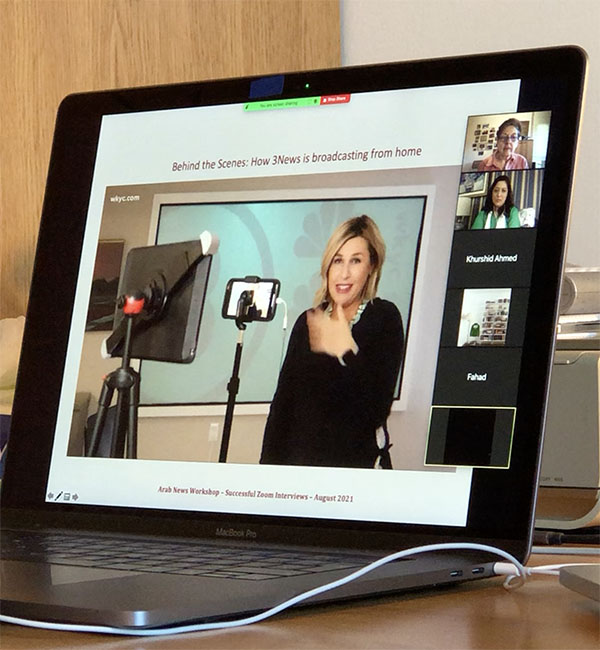
Changed newsrooms: broadcasting from home
Changed newsrooms: broadcasting from home
An obvious first step is extensive research on the interviewee and topic at hand as well as finding reliable public information.
Abu-Fadil also mentioned how to choose and use quotes, when to paraphrase and how to attribute quotations. But most importantly, she underlined the need to set the interview ground rules well in advance to avoid any problems.

Always set the ground rules before an interview
She wrapped up the workshop with references to interview legalities and ethics and showed videos demonstrating good and bad interviews.

